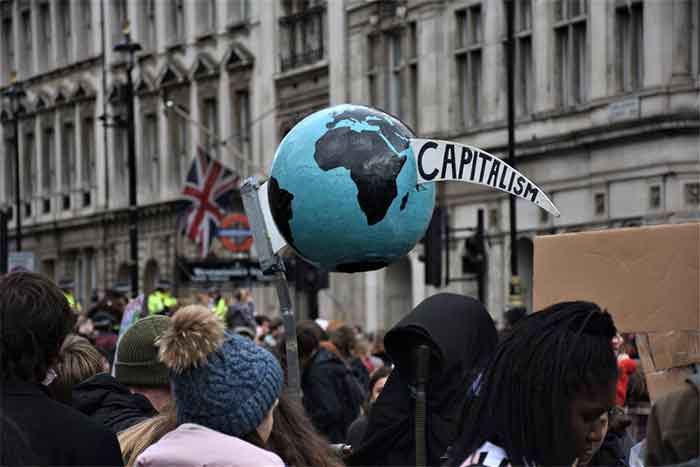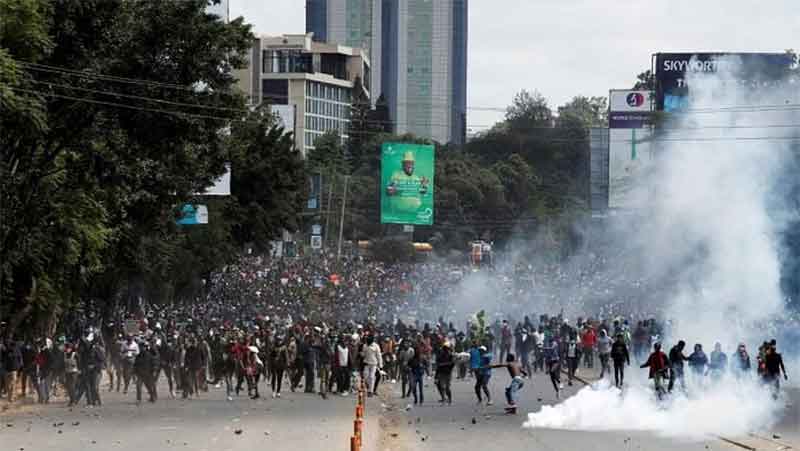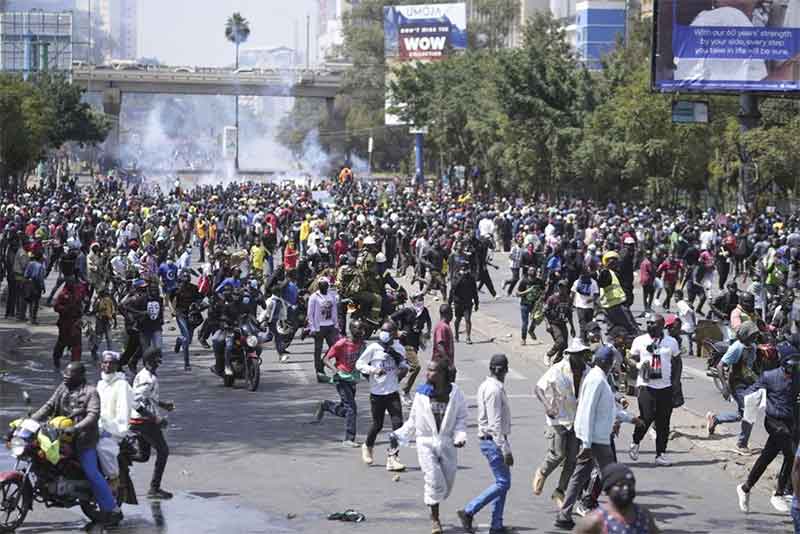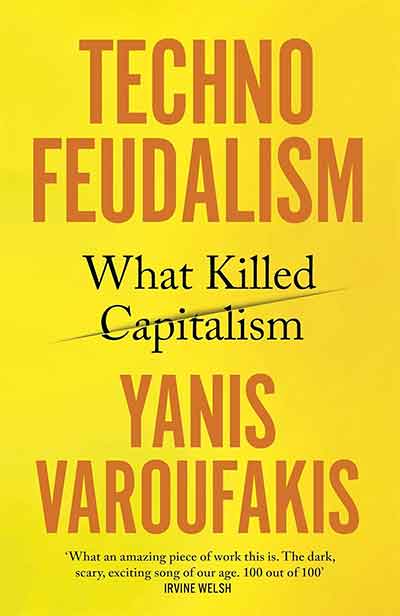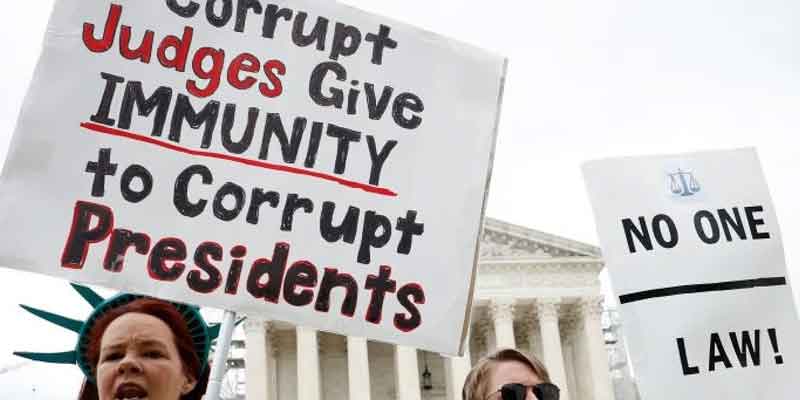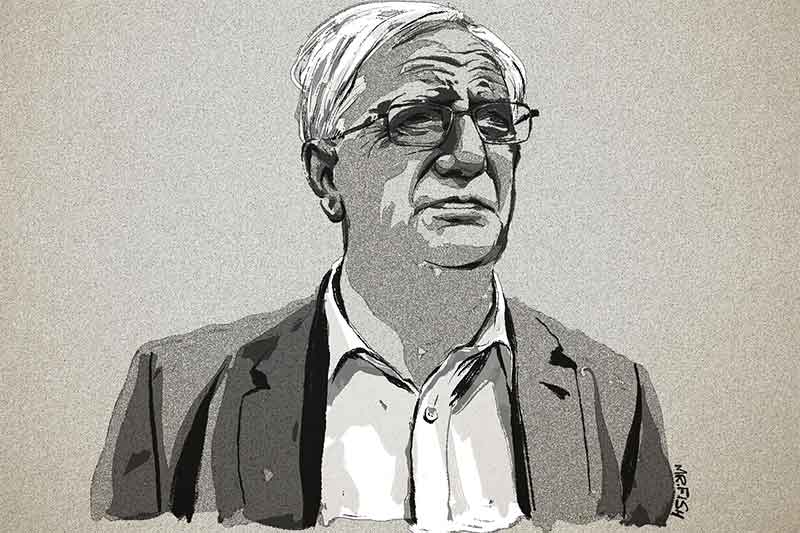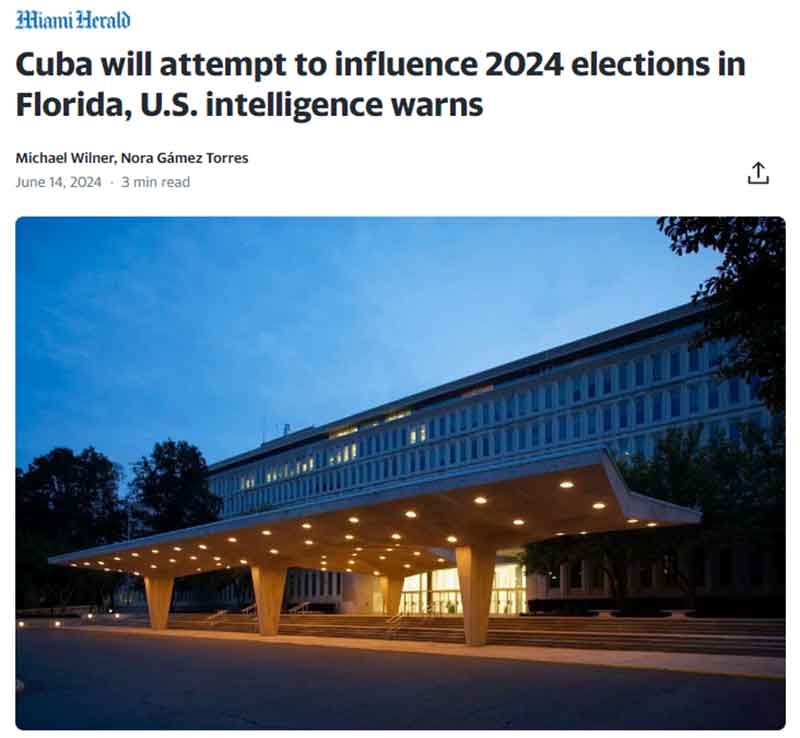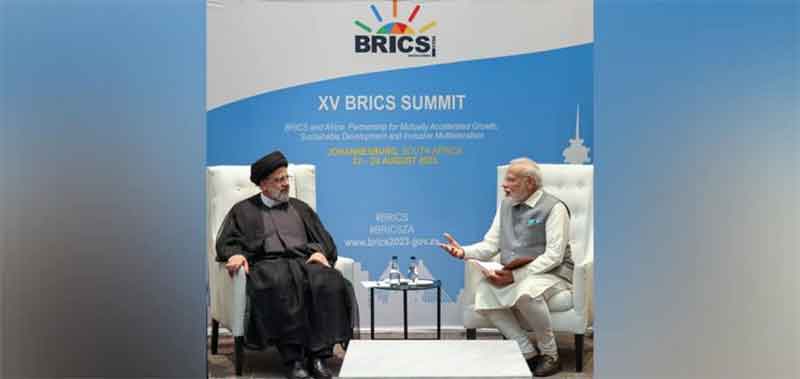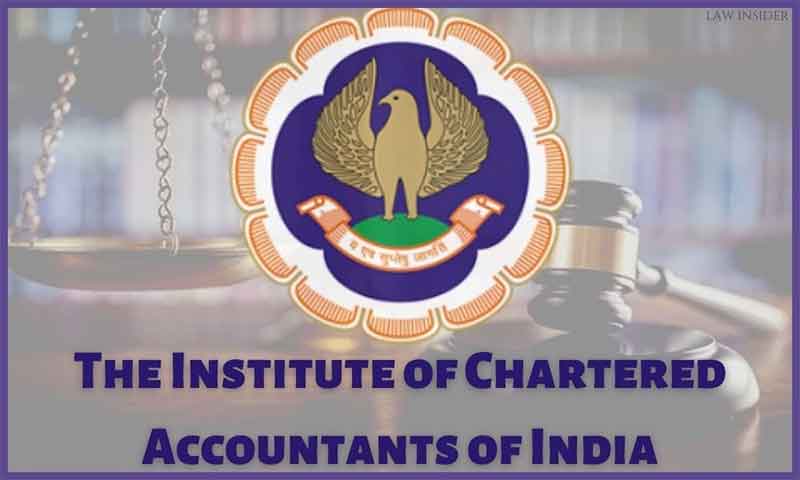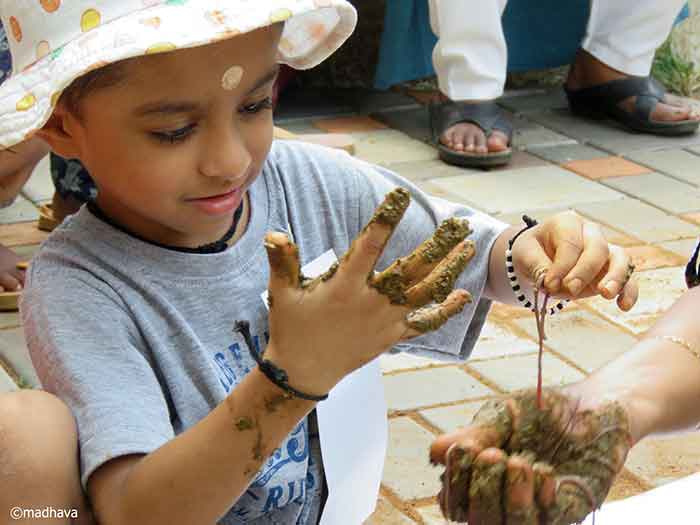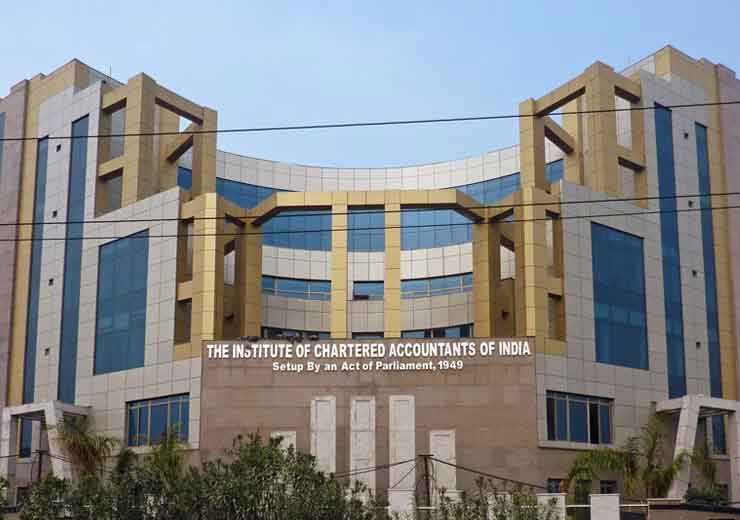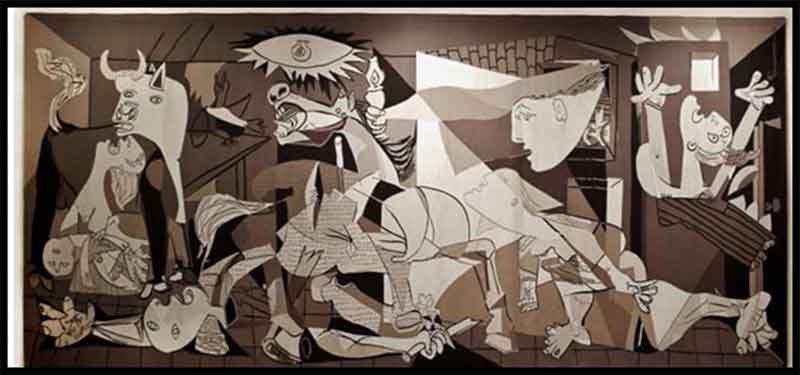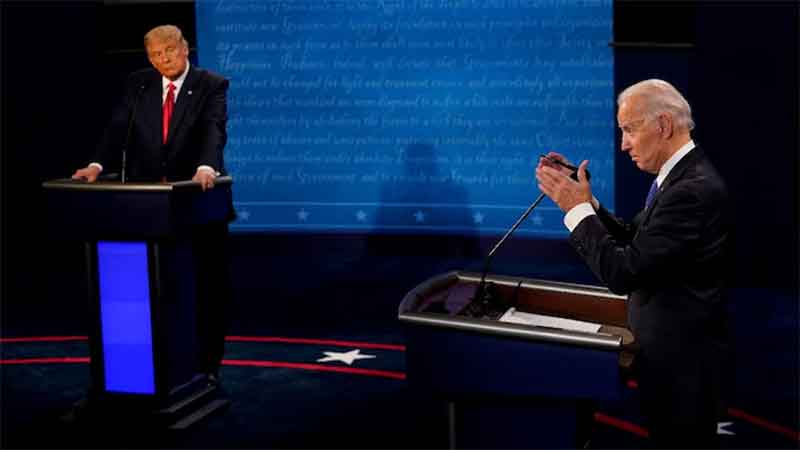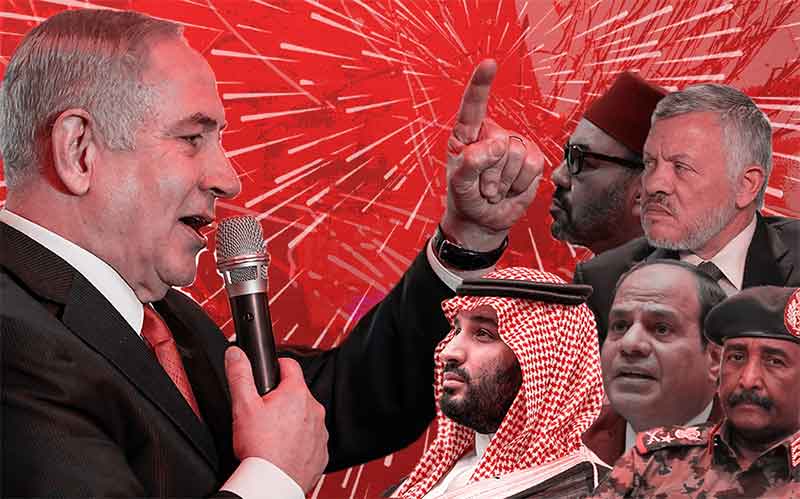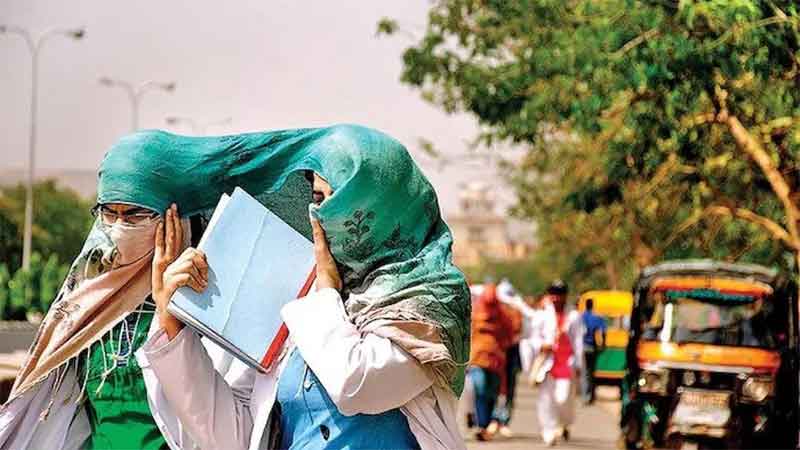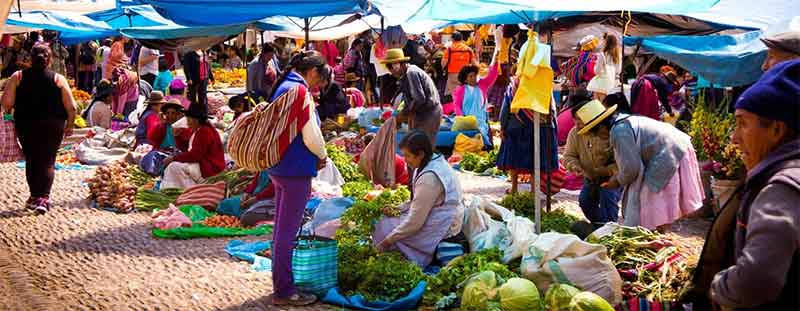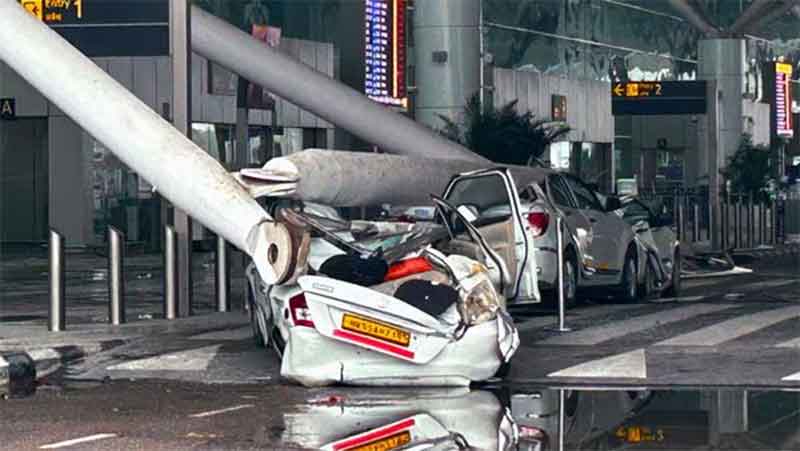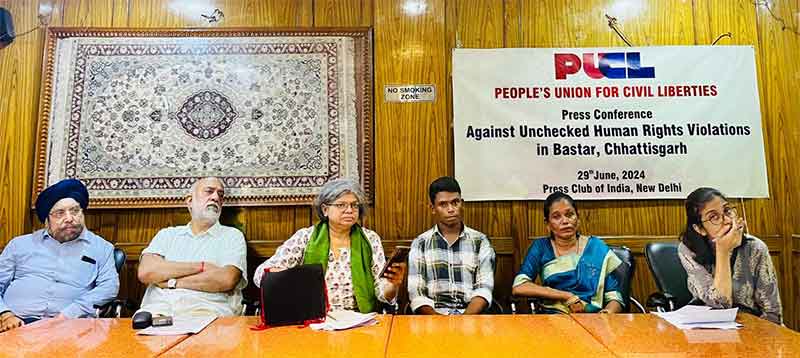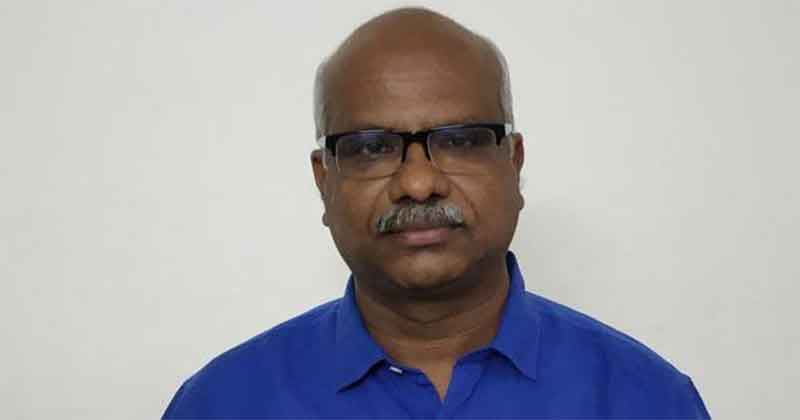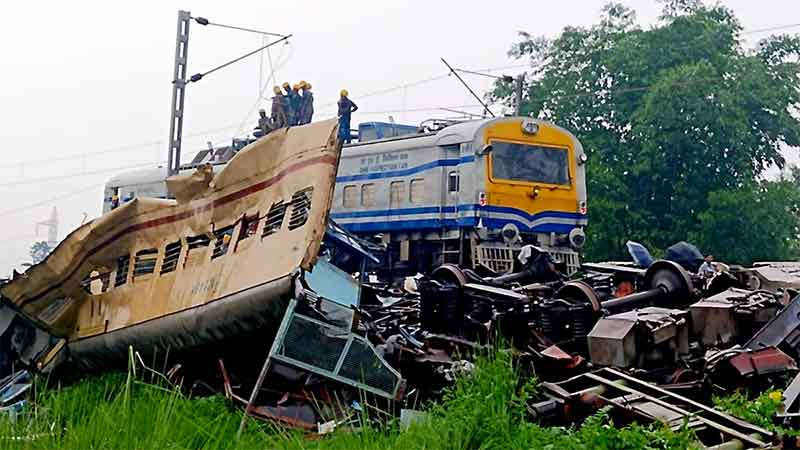Capitalism and imperialism have been exposed as anti-people forces like never before by their sponsorship of the genocide of the Palestinian people by their special agent, ‘Israel’, an illegal country created by imperialism on Palestinian soil. What was known, but kept hidden by imperialist-friendly media, is now part of people’s awareness around the world. Resistance to the imperialist mission is ever-present in every country as working people have been driven to poverty and almost slave-like conditions.
And yet it has not been possible to defeat US imperialism. Millions of people all over the world have been marching to end ‘Israeli’ genocide and are demanding that their (capitalist) governments stop their moral, financial, material and weapons support for ‘Israel’. But capitalism, with its hunger for super-profits, continues its wars, genocide, looting and murdering in its march to subjugate working people everywhere. The lure of profits from stolen land and resources is what drives them, blind to any humanitarian considerations.
People have power, yet they have not succeeded in stopping capitalism and imperialism from exploiting and oppressing working people. How can people’s power be harnessed to defeat the enemies of the people, is the key question today. There is no simple answer, but a combination of a strong political organisation, anti-imperialism, socialist ideology, appropriate leadership and active and united, class-conscious people remain the tools which are still essential, as they have been in other resistance movements. But if Left movements know this, so does imperialism. While the latter has taken steps to neutralise these weapons, people’s movements have not sufficiently protected and strengthened these powerful weapons in the people’s arsenal. That is one reason for the lack of progress in defeating capitalism and imperialism.
Imperialism attacks any form of organisation set up by people, be it political parties, trade unions or community organisations. No political party advocating the end of capitalism is allowed to exist; information about socialism is banned, suppressed or distorted; progressive leaders are marginalised or assassinated and their actions discredited; people are prevented from becoming class consciousness and even the mention of classes, class divisions and class conflict is banned. The bourgeoisie parliamentary politics is promoted as the only method of democratic practice. Generation after generation grows up without knowing their history of resistance against capitalism and imperialism.
Given this situation, are there any prospects for capitalism and imperialism be defeated in the short term? No system based on exploitation lasts for ever, as history has shown. All empires have faded, as did the Spanish, the Portuguese, the French and the British empires. It is the same happening now to the USA empire today. There are already the first signs of the end of the USA empire as it stretches around the globe with its massive military spending and wars which cannot be sustained for ever. The growth of BRICS, particularly China, provides the prospect of a new world order. But capitalism and imperialism will not end without a hard push from people. Even then, it may take decades to see its strength shrinking. There is no time for complacency among forces of the Left. The struggle needs to be intensified in every country, as well as globally, for success.
How then is it possible to organise in the current situation that allows possibly fewer ways for people to resist than in the past? These are no formulas that can be applied universally. But the teachings of Marx, Engels, Lenin and Mao need to be applied creatively by political parties. There are leaders in almost every country which has resisted imperialism whose ideas and actions need to be studied. In every case, concrete and critical analysis of the conditions and situation in each country and each region needs to be made to forge the way ahead. This essay looks at the experience in Kenya, both historical and current, to see the achievements and shortcomings of attempts of resistance movements and organisations. Similar experience can perhaps be seen in other countries and possibly indicate ways to deal with capitalism and imperialism of the 21st Century.
The Kenya Experience
Introduction[i]
Kenya faces critical times today as the government of President Ruto moves full speed towards the agenda set by USA via IMF directives. The push on Kenya to turn ‘West” and embrace capitalism wholesale should be seen in the context of global trends of imperialist offensives as it faces existential threats. This imperialist drive for world control has repercussions in Africa but is particularly evident in Kenya whose President has followed the dictates of USA to the full, adding the religious factor to an already explosive mixture of social tensions.
In this national, and linked international, struggle in Kenya, one voice is missing — that of the ‘Left’. While people have been marching in Mombasa, Kisumu and Nairobi, these demonstrations are not carried out on a national level by a party or a movement of the Left. They are not necessarily linked with the struggle to liberate Kenya from capitalism, nor a movement for socialism, nor action against the current government’s policies devised in offices of the World Bank and IMF.
This contrasts with earlier periods in Kenya’s history after independence when there were organised voices against capitalism and for socialism. Kenya People’s Union, with its slogan Uhuru na Ujamaa, openly stated its opposition to capitalism and its aim of achieving socialism. In its Manifesto (pp. 3-4)[ii] it stated:
The K.P.U. condemns the Government’s and K.A.N.U.’s capitalist policies: It is opposed to the creation of a small class of rich people while the masses live in poverty. It will pursue truly socialist policies to benefit the Wananchi. It will share out the nation’s wealth more equitably among the people, extend national control over the means of production and break the foreigners grip on the Economy.
The December Twelve Movement and MWAKENYA aimed for a similar vision from the underground. There were also anti-imperialist calls from students — secondary, college and universities, — workers and professionals against capitalist policies.
As the economic situation of working class deteriorates further today, where is the voice — and more important, action — of the Left in Kenya today? But before looking for answer to it, there is another, more important question: ‘Is there a Left in Kenya?’ These are key question as the country sinks deeper into the capitalist-imperialism sinkhole. According to Wanjohi wa Makokha (2023)[iii], ‘Left or right matters little these days. We are in the age of postmodernity in Kenya and its attendant manifestations all over’.
It is, first of all, necessary to be clear about what is meant by Left. The key aspect of Left are anti-capitalism, anti-imperialism, and for socialism. The recognition of classes and class struggles follow from these key ones. Also implied is the need for an organisation standing for these values, as without it, there is no effective resistance to capitalism and imperialism, no effective tool for working class struggle against the bourgeoisie and the comprador government.
There is undoubtedly anti-capitalist and anti-imperialism sentiments among working people in Kenya. This is evident in everyday resistance of workers on strikes, of peasants in many different ways and also in the demonstrations and actions against government policies and police actions of shoot-to-kill and violence against youth and police corruption. Demonstrations supporting Occupied Palestine by the imperialist-imposed ‘Israel’ are evidence of anti-imperialist sentiments among the people.
The missing element for a Left presence in Kenya then is the absence of a Left organisation that can channel the anti-capitalist sentiments and actions into nation-wide, effective resistance to capitalism and its ruling class and lead a serious attempt to establish socialism. An important organisation that gave a clear ideological lead to the war of independence — trade unions —is no longer present as it has been captured by the bourgeoisie state.
Capitalism is well entrenched in Kenya, initially by the departing colonial power, Britain. The key foundation it laid for this was the capture of peasant lands which it then turned into a commodity for ‘willing-buyers-and-willing-sellers’ — except no working class person could afford the price of buying their own, stolen land. USA took over the consolidation of capitalism after independence.
The struggle for liberating the country from the death-grip of capitalism will need a powerful organisation, much like the Land and Freedom Army — Mau Mau —to wage a relentless war against the bourgeoisie and its comprador class installed as the rulers. No such organisation is evident today. Perhaps the militant trade unionists at grassroots will join hands with struggling small and middle peasants and various youth groups, study circles and community organisations and form a powerful force of resistance. It can be done, as shown in various countries in Latin America. But not without a long struggle of creating class consciousness among people. Political education and liberating minds from capitalist mindsets is the first stage of a Left-led revolution.
A party of the Left is not created in a factory, ready to join the class struggle. Parties develop and grow as part of the struggle. Mau Mau grew as part of the intense struggle against the British colonial massacres, genocide and land robbery. The Kenya People’s Union grew from the struggles within KANU when it turned capitalist with the active involvement of Jomo Kenyatta. The December Twelve Movement, MWAKENYA and UMOJA all developed in the struggle against Moi’s reign of terror.
So the future can see the emergence of a strong Left. It is not too late. Capitalism is going nowhere until it is forced out.
No Mau Mau after Independence in 1963
Colonialism and imperialism created poverty, landlessness and lack of means of survival that drove people to take up arms against the colonial British administration in Kenya in the late 1940s. The working class joined hands with peasants and other progressive people in a national armed resistance under Mau Mau that brought independence and drove colonialism out of the country. But capitalism, which had been implanted by colonialism, remained. People’s forces brought independence, but not liberation from capitalism and imperialism. The stolen lands were never returned to their owners; working conditions failed to improve after independence; lives in cities and countryside remained a daily battle for those not part of the elite ruling class. Organising against capitalism was banned; opposition political parties favouring socialism were suppressed with the use of armed forces and capitalist media. Public assemblies were met by military style police forces. Youth, demanding jobs and their rights, were routinely shot at by the police. The state did not shy away from assassinating and murdering anyone they saw as articulating voice of people.
The only open challenge to the capitalist system was the formation of the Kenya People’s Party in 1966. It openly stood for socialism. In the few years before it was banned by the government, it got support from many in Parliament and among people, as shown at elections. The assassination of Pio Gama Pinto in 1965 and the banning of KPU in 1969 ended attempts to challenge capitalism through elections and Parliament.[iv]
Thus, the possibility to change the system that exploited people could not be taken up by Mau Mau and the trade unions. The resistance movement was weakened by its fight with colonialism and could not prepare and foresee what imperialism had in store for the country. Its best leaders were either killed or detained at the crucial stage when planning for the next stage was necessary. Perhaps they should have been better prepared for the neo-colonialist stage. After all, just as colonialism had the experience of imposing capitalism and suppressing resistance in all its colonies, particularly India, resistance in Kenya had the benefit of the same experience. The Pan-African movement had set out a path for liberation of African people. Many of the strategies and tactics that the movement for liberation in India used were also used in Kenya and could have provided experience to plan better. The creation of a socialist-orientated political party by Mau Mau and its aligned trade unions could have challenged the creation of the comprador state. It had mass support, committed leadership and anti-imperialist ideology. But the failure to take the struggle to the next stage of post-independence economic liberation led to the establishment of the capitalist Kenya, fully in alliance with imperialism.
DTM Fails to Emerge From the Underground
Resistance to capitalist policies of the government did continued after independence. When it was not possible to organise openly, people organised underground. Among these were the December Twelve Movement (DTM) which later merged with and emerged as Mwakenya. They continued their underground work from late 1960s to 1990s, working with its external wing, Umoja in UK. Their history has been told from their publications in various publications, including Durrani (2022 and 2023 b & c).[v]
Unorganised people, without a clear ideological stand are powerless, history shows. The resistance forces in Kenya had learnt this lesson during their war of independence. Thus, when it was not possible to resist openly, they went underground, but with their two weapons ready: their organisation — December Twelve Movement, and their ideology, socialism. And yet, just like Mau Mau, DTM and Mwakenya did not last long. In the years that they were active, they produced many key documents that are valid even after all these years; they showed in their organisation and activities, both above and underground, that it is possible to fight the comprador state, even though it has total support from imperialism.
How does, then, one understand or explain the fact that thy did not survive long enough to pose a threat in the long term to the comprador government when they were clearly articulating what people needed? The answers lie in global, external factors to the situation in Kenya and globally, as well as in internal factors which made the organisations weak in the long run.
The external factors are important. Kenya was important to imperialism for its wealth and resources but also for strategic reasons in the era of the Cold War. The comprador government had the full support from USA— economic, military and political — and thus managed to survive even when it was unpopular with the people.
The internal factors that prevented the long-term survival of DTM have not been fully understood or examined. Perhaps one of the greatest shortcoming was the lack of preparation of replacement leadership in case the top leaders were taken out by government action— by detention, exile or assassination. That is what the Moi government did following the 1982 coup attempt. Once the leaders were detained or exiled, the organisation began to disintegrate as there were no plans in place for continuity in such a situation. There were no fall-back leadership and the cells began to drift without central leadership.
Mwakenya Battles
After the exiling and detaining of the leaders of DTM, some of its cells revived the organisation and emerged as Mwakenya, following some of the policies and practices of DTM. But it faced other internal struggles. It failed to follow the guarded recruitment policy of DTM which allowed full membership only to these trained and tested through its cell structure. Mwakenya thus allowed people who were not ideologically prepared and tested for combating capitalism and imperialism to become party members. The result was a loss of its ideological clarity. It allowed indisciplined members to take up leadership positions. It was only after Mwakenya and UKenya merged in 1996[vi] that this state of affairs was fully investigated and those responsible were suspended from Mwakenya leadership and membership in 2003[vii]. After this date, there was an organisational change with two wings, internal and external. The internal wing was headed by Karimi Nduthu who was later assassinated by the Moi regime. Again, there was no obvious replacement for him and the movement suffered. The external wing was essentially the regrouping of DTM in exile and met in New York, London and also in countries neighbouring Kenya. In effect, the revived Mwakenya was a continuation of the December Twelve Movement.
However, the revived DTM-Mwakenya faced another hurdle that was never surmounted. This was its attempt to unite the left, progressive and anti-imperialist forces in the country. It issued its Charter of Democracy [viii] in Kenya in 1995. It sought unity patriotic, progressive, democratic, and anti- imperialist forces in the country:
We believe it is time for all patriotic, progressive, democratic, and anti- imperialist forces in the country to unite and act together. It is time to seize the historical moment and hour. We let it slip in 1982, then again with the queuing elections in 1988, and yet once more in 1992, this time with the so-called “multi-party elections”. All these failures have cost us dear – the regime is responsible for over 10,000 deaths, other thousands have been maimed, detailed, tortured and exiled. Personal property of thousands has been wantonly destroyed by agents of the regime. The regime has used its thug army to kill, burn and create internal refugees and paupers numbering tens of thousands. Personal politics, lack of ideological clarity and a lack of understanding of the need for unity under a common platform all played their part in lack of unity.
Sadly, there was little response from Left and progressive individuals and organisations to this plea for unity. It is this lack of unity among progressive forces that enables the ruling class to carry on its class-based policies without a united opposition.


2020s and the Battle of Ideas
Given the external and internal factors which destabilised the resistance movements, the preparation for struggle against capitalism and imperialism became a long-term process which needed patient work to create class consciousness among working people. After that, committed cadres needed to be ideologically prepared and given experience of anti-imperialist work before being recruited into a socialist organisation. That would then bridge the gap between theory and practice. It is in this process that a genuine working class party rooted among people can emerge.
The situation in Kenya is at present at the ‘learning and study’ stage, with activists involved in study and practice in street demonstrations. Many study groups and political and social movements have emerged. The use of social media has given rise to many progressive sites, some linking activists from East Africa, others are Africa-wide. It was among these groups that the idea emerged for the formation of Article One Movement for Liberation: Kenyans For Land, Freedom and Justice[ix] emerged. It explains:
The Article One Movement is the coming together of progressive people’s movements and individuals asserting their constitutional right to bring about a rule of equality, justice and democracy in Kenya. These principles, although enshrined in our Constitution, have been consistently suppressed by the KANU-inspired governments of Kenya since independence in 1963. But no more.

The Movement was launched at a Kimathi Day event on February 18, 2024. It remains to be seen if this initiative has better prospects of uniting the Kenya Left than Mwakenya’s Charter for Democracy.
Some experience in organising and learning
While the state maintains a firm grip on its policies of strengthening capitalism and imperialism, people use whatever means available to organise and politicise people. One such example is the activities of social justice centres. The Mathare Social Justice Centre shows some of its activities in the battle of ideas in the documentary, Let the Rivers Flow – Mathare Ecological Justice Network Documentary.[x] This indicates the wide range of social issues that unite the people of Mathare, but also their use of modern media to document and publicise their activities.
Another example is the meetings and study sessions carried out by many organisations, including the following one:


The battle of ideas is taken up seriously by two linked organisations, Vita Books (a publisher) and Ukombozi Library, an independent library. Their work is summarised below:
The battle of ideas cannot be waged in a situation where relevant reading resources are not available. Not can it be waged if the available resources are not made available to working people. Vita Books and Ukombozi Library fulfil these two functions. They are not ordinary publisher or library. After all, there are many publishers in Kenya, but none publish the material that Vita Books does. There are many libraries in Kenya, public and private, but none take up the work that Ukombozi Library does, in providing relevant material to a working class users and takes its service to the communities where working people are. The essential difference between these institutions and the traditional ones is that they are clear about their politics in serving working class users. Kimani Waweru, Loren Balhorn talk about the Ukombozi Library[xi] and explain the political background of Ukombozi Library:
The Ukombozi Library was started in August 2017 in order to provide interested readers with progressive literature, especially on socialism. Over the years the Kenyan government has tried to suppress socialist material, or sought to depict such literature as irreverent to modern times. During the rule of Jomo Kenyatta and Daniel Arap Moi (the first and second presidents), people who were found with such materials were arrested, tortured, detained, and even forced to seek political asylum. For example, the historian Maina Kinyatti was jailed for six years.
Many activists were also members of the December 12th Movement or DTM, an underground political movement in the 1980s that later became the Mwakenya Movement. DTM had its own secret library, established and managed by Nazmi Durrani. When Nazmi Durrani passed away in 1990, the books were stored at the homes of several Mwakenya cadres. In 2017, Mwakenya together with Vita Books and the Mau Mau Research Centre collected those materials and established a library so they could be shared with the public. That library is the Ukombozi Library, The library strives to break with the colonial and imperialist mould of public libraries by meeting the informational needs of students, working people, and peasants. These needs are rarely met by national and tertiary libraries. The library was given the name Ukombozi, “Liberation”, meaning it seeks to liberate people from capitalist and imperialist mind-sets.
.

Ukombozi Library shelves Photo: Nicholas Mwangi
Similarly, the background of Vita Books is given in the above interview:[xii]
Vita Books was established in 1986 by Kenyan activists who took refuge in Britain from Daniel arap Moi’s dictatorship. At one level, it was designed to disseminate information relevant to working people and their anti-imperialist struggle in Kenya. The Kenyan ruling elite had continued to promote the colonial perspective of people’s resistance to colonialism and imperialism, and that became the official version in education, mass media and national consciousness. Those involved in establishing Vita Books saw an urgent need to tell an alternative version of the history of Kenya and people’s resistance to imperialism. A new mindset had to be created to show the reality of the oppression and exploitation that had impoverished the majority of the country’s people.
Our last publication, Liberating Minds, explains the name, Vita Books:
The term vita in Vita Books needs some clarification, as too often it is seen in the West as derived from the Latin for ‘life’. As used here, however, vita is taken from Kiswahili, the national language of Kenya, in which it translates as ‘war, battle, fighting, contest, struggle’. We used it here to indicate a struggle for relevant information. In addition, the term vita also relates to vitabu — Kiswahili for ‘books’. And the dual aspects of its name — struggle and books — are captured in the Vita Books’ logo
.
In this situation, the two organisations work together to enhance learning about theory and history and putting this learning into practice. Among their activities is the delivery of an on-line course on ‘Trade Union, Class & Power: On-Line Course for Trade Unionists and Activists in Kenya’, based on a similar course by the Marx memorial Library in London. The battle of ideas needs learning and training programmes as a political activity which no other institute in Kenya delivers.
The lesson is clear: those active in the battle of ideas with capitalism and imperialism need to be politically committed to anti-capitalism and anti-imperialism and be committed to socialism. There is no room here for sitting on the fence and pretending to be neutral in the class struggles raging in Kenya, Africa and the world.
Capitalism and imperialism have survived over centuries. It will not be possible to dislodge them in a few years, even decades. The battle will be long, hard and will need much sacrifice. As the Kiswahili poem, Sina Habari says,
I have no news, my child
No news at all
Except
news of troubles, torture and death[xiii]
Only with such sacrifices will it be possible to eliminate these enemies of people.
4,584 Words
03-05-2024
[i] Adopted from Is the Left Dead in Kenya? by Shiraz Durrani. 28/10/2023. Countercurrents.org. Available at: https://countercurrents.org/2023/10/is-the-left-dead-in-kenya/
[ii] Kenya Peoples’ Union (1966): K.P.U. Manifesto for 1966 By-Elections. Nairobi: KPU. Reproduced in Durrani (2023). op.cit.
[iii] Makokha, Wanjohi wa (2023): Personal communications, WhatsApp, 24-10-2023.
[iv] Some aspects of the ideological and political struggles of the period are covered in Durrani, Shiraz (2023a): Two Paths Ahead: The Ideological Struggle between Capitalism and Socialism in Kenya, 1960-1970. Nairobi: Vita Books.
[v] see for example:
Durrani, Shiraz (2022): Lessons from the Underground: Kenya’s December Twelve Movement Linked Theory with Practice. Communist Review No. 105 (pp. 2-11).
Durrani, Shiraz (2023b): UMOJA Seen Through its Documents, 1987-1990: The United Movement for Democracy in Kenya Takes up the Baton from December Twelve Movement. Part 1: The Kenya Socialist No. 6. Pp. 20-36.
Durrani, Shiraz (2023c): Mwakenya Questions (2020). Guerrilla Incursions into the Capitalist Mindset: Essays with Focus on Kenya,1979-2023. pp. 343-345. Nairobi: Vita Books.
[vi] See: Mwakenya Central Committee (1996): Mwakenya-UKenya Merger (1996). Statement to ‘To: All Mwakenya and UKenya members & Friends of Kenya’. Available at the Kenya Resistance Archives, Ukombozi Library.
[vii] Some documents relating to this investigation are available at the Kenya Resistance Archives, Ukombozi Library.
[viii] Mwakenya (1995): Charter for Democracy in Kenya. Issued in Mpatanishi Special Issue (October 1995). Available at the Kenya Resistance Archives, Ukombozi Library.
[ix] Available at Ukombozi Library, Nairobi.
[x] Available at: https://www.youtube.com/watch?v=InWjUbBMsqE
[xi] Kimani Waweru, Loren Balhorn: Kenya’s First Socialist Library: A new RLS partner in Nairobi seeks to popularize socialist literature in the city and beyond. Available at: https://www.rosalux.de/en/news/id/41361/kenyas-first-socialist-library/
[xii] Interview with Shiraz Durrani and Kimani Waweru, Vita Books, Kenya. Available at: https://www.readafricanbooks.com/publisher-profiles/shiraz-durrani-and-kimani-waweru/
[xiii] Are you ready to hear the news (of troubles, torture and death?) in the following poem by the author. The original Kiswahili version has been translated into English:
Sina Habari, Mwanangu: I have no news, my child (1985)
I have no news, my child
No news at all
Except
news of troubles, torture and death
I have no news, people of my land
No news at all
If you want land, if you want food
House and clothing
No news at all
Except
News of bullets and wars
I have no news, patriot
No news at all
If you want freedom, liberation
Self-government and liberty
I have no news
Except
News of struggles
I have no news, my child
No news at all
If you want life
Be prepared to struggle
And to struggle again.
I have no news, my child
no news
Except
News of struggles, torture and death.
Oh my child,
Are you ready
To hear the news?
[1] Translation of Sina habari, mwanangu (Kiswahili)
Shiraz Durrani is a Kenyan political exile living in London. He has worked at the University of Nairobi as well as various public libraries in Britain where he also lectured at the London Metropolitan University. Shiraz has written many articles and addressed conferences on aspects of Kenyan history and on politics of information in the context of colonialism and imperialism. His books include Kenya’s War of Independence: Mau Mau and its Legacy of Resistance to Colonialism and Imperialism, 1948-1990 (2018, Vita Books). He has also edited Makhan Singh – A Revolutionary Kenyan Trade Unionist (2017, Vita Books) and Pio Gama Pinto: Kenya’s Unsung Martyr,1927 – 1965 (2018, Vita Books). He is a co-editor of The Kenya Socialist. and edited Essays on Pan-Africanism (2022, Vita Books, Nairobi). His latest book (2023) is Two Paths Ahead: The Ideological Struggle between Capitalism and Socialism in Kenya, 1960-1990. Some of his articles are available at https://independent.academia.edu/DurraniShiraz and books at: https://www.africanbookscollective.com/search-results?form.keywords=vita+books

